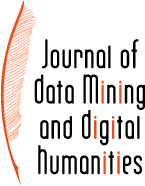 |
Asko Mononen - Perceptions of 21st-century digital skills and agency among design sprint participants in Laurea UAS, Finland
jdmdh:13291 - Journal of Data Mining & Digital Humanities, 29 avril 2024, NLP4DH - https://doi.org/10.46298/jdmdh.13291- 1 Laurea University of Applied Sciences
This explorative study investigated students’ (N=16) perceptions before and after the study unit Digital Analytics and Consumer Insights. The studies were conducted as an intensive hybrid five-day design sprint, a variant of project- and problem-based learning. An online questionnaire with a 5-point Likert scale was used for data collection. The findings indicate that the intervention improved perceptions of most studied digital “hard skills” (8/11 claims). Out of twelve 21st-century “soft skills” claims, perceptions were high initially and improved significantly for critical thinking and systematic problem-solving claims during the design sprint. The agency scores showed a slight improvement but no significant difference. Face-to-face groups would be willing to recommend the sprint method more for peers than online groups. In the era of global turbulence and artificial intelligence, in addition to hard skills, soft skills like communication, teamwork, problem-solving and project management are in demand by employers. According to LinkedIn data in 2/2024, adaptability is the most demanded skill. In addition to traditional subjects, the pedagogical methods in higher education should better support the development of 21st-century skills.
Fichiers
| Nom | Taille | |
|---|---|---|
|
Final_Perceptions_280424.docx
md5 : 7eceff65555ccf1ccddfb38d81c3d484 |
785.1 KB |
